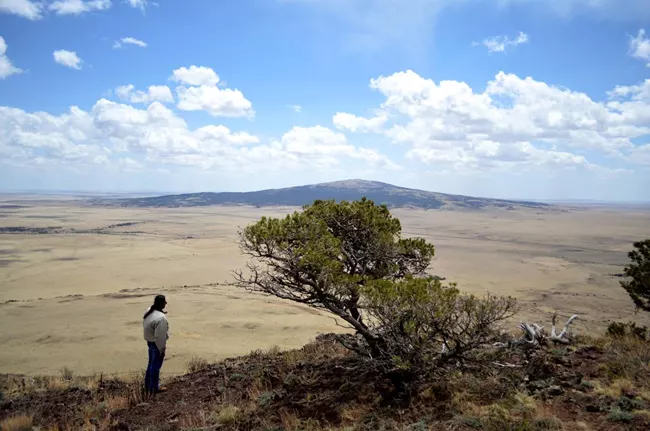Indigenous Knowledge is a body of observations, oral and written knowledge, innovations, practices, and beliefs developed by Tribes and Indigenous Peoples through interaction and experience with the environment.11 It is applied to phenomena across biological, physical, social, cultural, and spiritual systems.12 Indigenous Knowledge can be developed over millennia, continues to develop, and includes understanding based on evidence acquired through direct contact with the environment and long-term experiences, as well as extensive observations, lessons, and skills passed from generation to generation.
Indigenous Knowledge and Traditional Ecological Knowledge are interchangeable but vary in details that make them a bit similar from one another because of the nuances Natives developed over the duration of time they spent with the land. TEK is an adoption of these practices with an addition to Western science that is helping to further the continuation of this information.
–Guidance for (United States) Federal Departments and Agencies on Indigenous Knowledge
Traditional Ecological Knowledge (TEK) is the on-going accumulation of knowledge, practice and belief about relationships between living beings in a specific ecosystem that is acquired by indigenous people over hundreds or thousands of years through direct contact with the environment, handed down through generations, and used for life-sustaining ways. This knowledge includes the relationships between people, plants, animals, natural phenomena, landscapes, and timing of events for activities such as hunting, fishing, trapping, agriculture, and forestry. It encompasses the world view of a people, which includes ecology, spirituality, human and animal relationships, and more.
Traditional Ecological Knowledge is really one of the most important discoveries I made in my research. It’s good to know this information already exists and has been applicable to helping preserve and conserve the environment. It’s a start in realizing how not only indigenous practices should be recognized, but also a way to incorporate the people who were the originators of developing and cultivating a relationship with the land and ecosystems throughout time. My focus is on how to bridge this gap of the Native people having little to no association with their land in Ohio as of today. I see an opportunity for this to be one of the ways to rectify the past by establishing a relationship between the Ohio Parks by using what they know and informing others.
–Synopsis of Traditional Ecological Knowledge, National Park Service
TEK is also called other names, such as Indigenous Knowledge, Native Science.
Indigenous peoples as well as non-Indigenous peoples who are long-term (hundreds of years) local residents, e.g., Appalachian communities, Spanish land grant communities, can also provide TEK.
TEK is different from user knowledge and local knowledge. User knowledge is one person’s experience over a lifetime or less. Local knowledge is more than one person’s experience aggregated, showing a trajectory, but not yet time tested. Individual users sharing knowledge with other local users and elders, and then time-testing this new knowledge is part of the evaluation and validation process for TEK.
Source: Overview – Indigenous Knowledge and Traditional Ecological Knowledge (U.S. National Park Service). (n.d.-b). https://www.nps.gov/subjects/tek/description.htm#:~:text=Traditional%20Ecological%20Knowledge%20(TEK)%20is,environment%2C%20handed%20down%20through%20generations%2C




